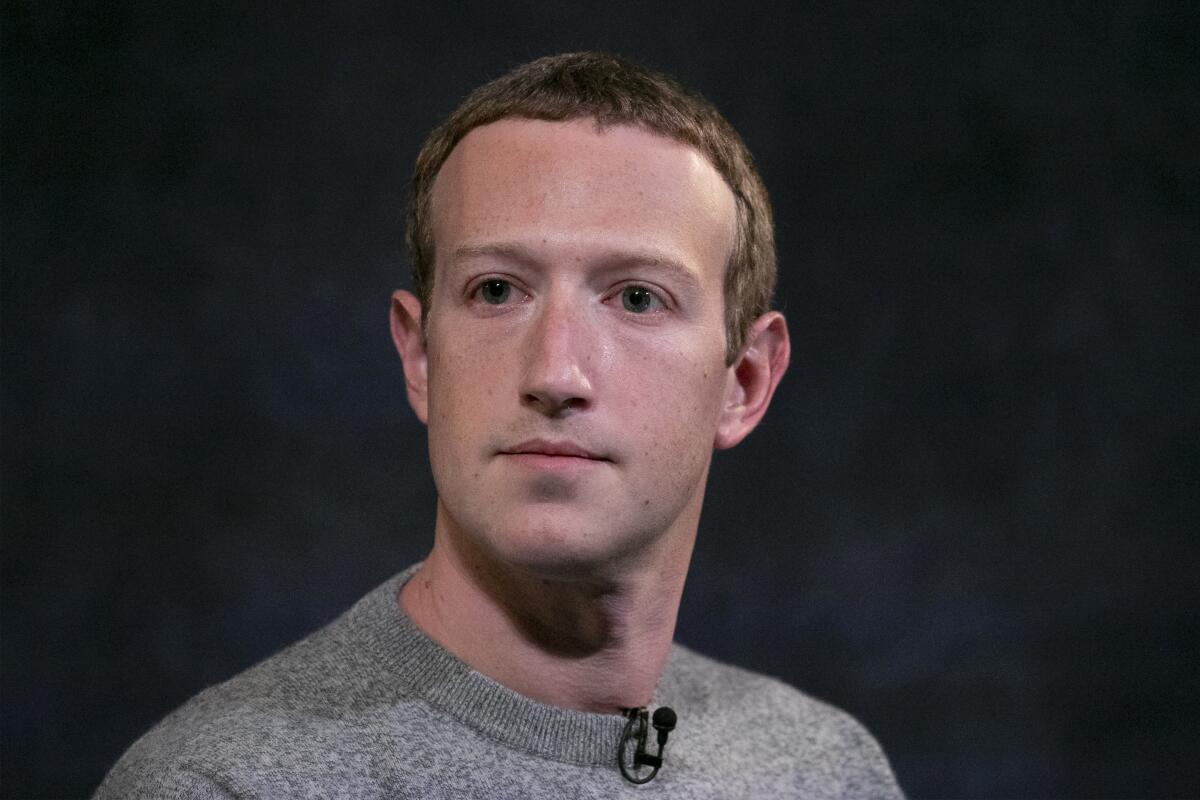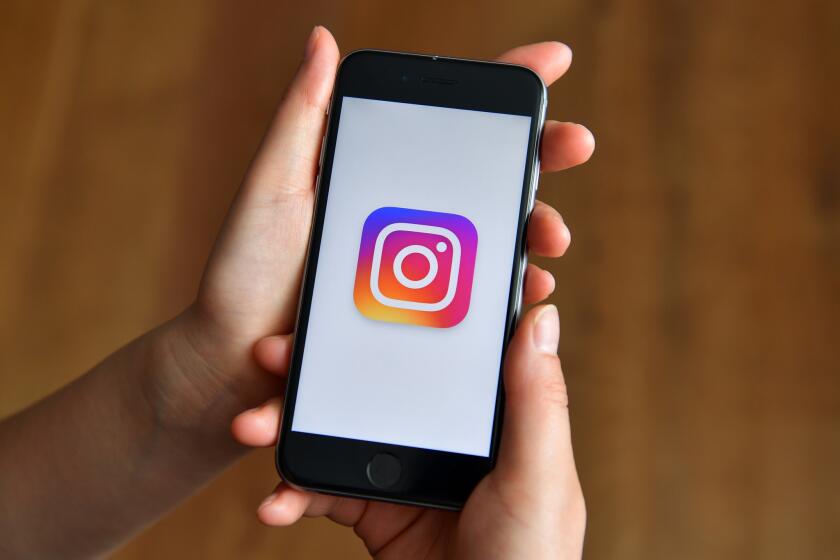Civil rights groups meet Facebook’s Zuckerberg, leave unimpressed

- Share via
Civil rights organizations criticized Facebook Inc. after a meeting with top executives Tuesday, saying the company hasn’t taken seriously demands to better police its service from hate speech and misinformation.
“Facebook approached our meeting today like it was nothing more than a PR exercise,” Jessica González, co-chief executive officer of Free Press, a nonprofit media advocacy group, said in a statement after the meeting. “I’m deeply disappointed that Facebook still refuses to hold itself accountable to its users, its advertisers and society at large.”
Facebook CEO Mark Zuckerberg and Chief Operating Officer Sheryl Sandberg also met with members of the NAACP, the Anti-Defamation League and Color of Change, who have organized a boycott of the company’s advertising products in seeking to prompt change. The executives didn’t “commit to a timeline” to remove disinformation and hate speech, Gonzalez said, but instead “delivered the same old talking points to try to placate us without meeting our demands.”
“The meeting we just left was a disappointment,” Rashad Robinson, president of Color of Change, told reporters.
For companies whose entire livelihood depends on finding customers through Facebook and Instagram ads, the prospect of joining a boycott of those platforms raises a unique dilemma.
The forum, which lasted about an hour and was held over video conference, was intended to be a venue to discuss potential ways to make the Facebook platform less toxic, such as adding executives with civil rights experience to the company’s top ranks and fact-checking political speech.
“Today we saw little and heard just about nothing,” said Jonathan Greenblatt, CEO of the Anti-Defamation League, who was in the meeting. “The company is functionally flawed.”
Since the groups called for the boycott, hundreds of advertisers, including well-known brands such as Unilever, Verizon Communications Inc. and Coca-Cola Co., have announced plans to pull advertising from Facebook’s properties over criticism the company doesn’t do enough to police user content. As the boycott grew, Facebook approached the civil rights organizations about a meeting. The groups agreed to meet if Zuckerberg would attend.
“They want Facebook to be free of hate speech and so do we,” Facebook said in a statement after the meeting. The company pointed to efforts it has made in recent years, mentioning an audit of its policies and practices and noting that it has spent billions of dollars building systems to police its service. “We know we will be judged by our actions not by our words and are grateful to these groups and many others for their continued engagement.”
In emails and phone calls with advertisers, Facebook has defended its attempts to fight hate speech and voter suppression, talking up its automated systems that find and remove these kinds of posts automatically. The company has also highlighted a voter registration initiative through which it hopes to register 4 million voters before the U.S. election in November.
Greenblatt described Facebook’s claim that it automatically catches 89% of hate speech as an unacceptable number. “The Ford Motor Co. can’t say that 89% of our fleet has seatbelts that work,” he said, adding that such a seatbelt-failure rate would require a recall. “Maybe it’s time we recall Facebook Groups? Maybe it’s time we recall the News Feed?”
Another topic of discussion on the call was the civil rights audit of Facebook’s policies, which the company started in mid-2018. Facebook, which has said it will publish the full report Wednesday, previewed some of the results with the civil rights groups during the meeting. The audit was carried out by a third party, meaning the results are independent of Facebook but also that they are less likely to lead to change, Robinson said.
“What we get is recommendations that they end up not implementing,” he added. Facebook will make some changes to add “long-term civil rights infrastructure” to the company, but Robinson said the details were still “unclear.”
What was clear from the outset was that the two sides wouldn’t likely come to a resolution Tuesday. In a post before the meeting started, Sandberg acknowledged that Facebook needs to do more to fight hate speech, but also said the company is unlikely to implement all the recommendations from the civil rights audit.
The civil rights groups said their fight with Facebook is far from over. “I believe this campaign will continue to grow,” Greenblatt said. “It will get more global, it will get more intense, until we get the answers that I think we are looking for.”







